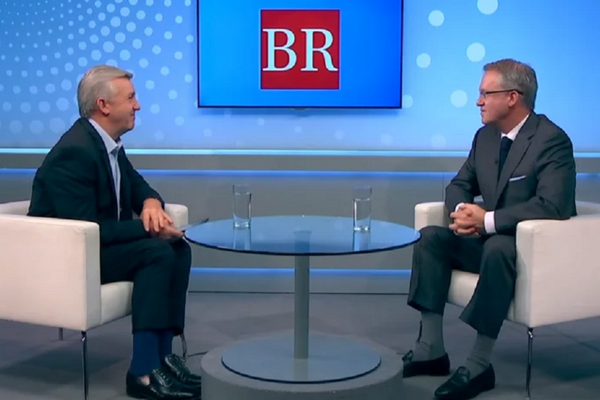Climate action: step up, or be swept away

by Joy Green, Principal Futures Specialist, Forum for the Future In the 2020s your business will either rise to the challenges of the decade and reap the rewards, or be swept away by a tide of change. Across the board – manufacturers, brands, retailers, investors and insurers – more and more businesses are waking up to the reality of near-term climate disruption and the scale of action that mitigating it requires. We face two choices: either we fundamentally reconfigure our systems to be zero-carbon and regenerative, transforming the entire business landscape in the process, or we continue with business as usual, in which case our systems, services and society will come under intolerable pressure and start to irreparably fracture. Whether we get our act together or continue to fumble blindly ahead, either way we will leave the status quo behind in just 11 years – or two business cycles. Climate change threatens almost everything that business relies on – agriculture, water access, infrastructure, supply chains, stable geopolitics. Acting on climate now means both prevention – rapidly decarbonising everything from energy and diets to infrastructure, logistics and data flows – as well as adaptation to the new normal. For example, in a world of extreme weather, geopolitical strife and resource scarcity, supply chains spanning continents will be unfeasibly vulnerable, not to mention probably uninsurable. The colossal risk cannot be overstated, and yet for clear-sighted leaders the opportunities could be equally plentiful, and fortunes could be made on the way. Businesses that learn how to thrive in a climate-disrupted world will naturally outpace their competitors. The opportunity here is in recognising that in taking action on climate you’ll also be shoring up your own resilience to disruption: climate-friendly approaches to agriculture that restore carbon sinks, decentralised renewable energy, sustainably sourced commodities, and manufacturing practices that build resilience in local communities, to name just a few. There are already signs of early movers in the financial sector shying away from climate-vulnerable businesses, with credit-raters and insurers busy reassessing climate-risk factors, providing another incentive to action. The rate of fossil fuel divestment has shown a 120-fold increase in the last four years, and should carbon taxes be rolled out the trend can only continue. Climate chaos will not only fundamentally alter the environmental operating context of your business. It will also have knock-on effects in another key sphere, the sociopolitical arena. With drivers that find their roots in climate change, 2018 saw the highest levels of migration since after the Second World War, with predictions that this could reach one in nine people by 2050. There are already strong causal links between people on the move and nationalism and it’s becoming clear this is not a blip, but a symptom of a broken political settlement characterised by deep inequality, insecurity and lack of proper representation. Businesses need to be aware of the dangers here, such as social fracturing, protectionism and trade wars, and also to understand how they can contribute to a more positive outcome. Polarised, fearful societies tend to be low on opportunity and bad for creativity, innovation and business. In response, we’re seeing a subtle but growing rise in participatory processes that could provide an antidote, helping both the healing of rifts and the creation of more resilient communities. Whether it’s in democratic processes, such as group budgeting decisions in Brazil, or in government-citizen bridge-building, as seen in Madrid’s “Decide Madrid” movement, businesses should find ways to not only support this trend in the public realm but also learn how to apply it in the workplace. The outlook is daunting, but is also full of opportunity. Adaption and resilience of your operations to near-certain factors – supply chain vulnerability, extreme weather, massive migration levels – should be second in importance only to prevention of further levels of warming through decarbonisation and regeneration of carbon sinks. Understanding how this converges with politics and society, and in turn how that will define your business in the lead up to 2030, will be key to navigating the turbulent waters to come.
Explore the dynamic areas shaping sustainability in our latest report: The Future Of Sustainability, Driving Systems Change In Turbulent Times.

Business Reporter Team
Most Viewed
23-29 Hendon Lane, London, N3 1RT
23-29 Hendon Lane, London, N3 1RT
020 8349 4363
© 2024, Lyonsdown Limited. Business Reporter® is a registered trademark of Lyonsdown Ltd. VAT registration number: 830519543
Join the Business Reporter community today and get access to all our newsletters, and our full library of talk show episodes
Join the Business Reporter community today and get access to all our newsletters, and our full library of talk show episodes




